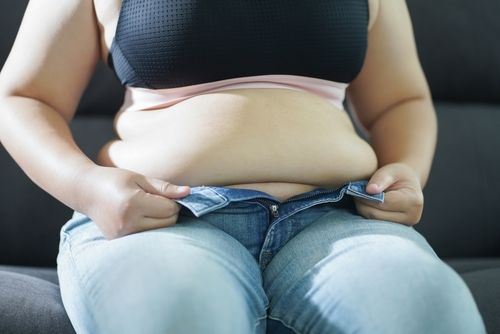What is FUPA and How to Deal with it?

In today’s health-conscious world, where discussions about fitness, body shape, and wellness are rampant, it is important to address various aspects of the human body. One topic that has gained notoriety over the years is the FUPA, which stands for “Fat Upper Public Area.” This study aims to provide a comprehensive understanding of what FUPA is, its causes, and potential ways to manage or reduce it.
Defining the FUPA
The term FUPA, an acronym for “Fat Upper Public Area,” refers to the accumulation of excess fat in the region just above the pubic bone. Often misunderstood and sometimes stigmatized, the FUPA is a natural part of the body and can affect individuals of all genders, shapes, and sizes.
While FUPA might seem like a simple term, its implications can be complex. It is essential to understand the reasons behind the development of this fatty area, as well as its impact on one’s health and self-esteem.

Causes of FUPA
Genetic Predisposition
Genetics plays a significant role in the distribution of body fat. Some individuals are more prone to accumulating fat in the upper pubic area due to their genetic makeup. This means that even with a healthy lifestyle, FUPA might still be a concern for those with a family history of the condition.
Weight Gain
One of the most common causes of FUPA is excessive weight gain. When an individual gains weight, it can lead to the accumulation of fat in various areas of the body, including the upper pubic region. Weight gain can be a result of poor dietary habits, a sedentary lifestyle, or medical conditions.
Aging
As we age, our bodies undergo various changes, including alterations in body fat distribution. Hormonal changes slow metabolism, and the loss of muscle mass can contribute to the development of an FUPA in older individuals.
Pregnancy
Pregnancy is another significant factor that can contribute to the development of a FUPA. During pregnancy, the body undergoes numerous changes, including weight gain and hormonal fluctuations. These changes can lead to the accumulation of fat in the upper pubic area, which is often difficult to shed post-pregnancy.
Health Implications
Having a FUPA is not just a cosmetic concern; it can also have health implications. Excess fat in this area can put pressure on the surrounding organs, potentially leading to discomfort and health issues. Some of the potential health concerns associated with a FUPA include:
- Back Pain: The extra weight in the upper pubic area can cause strain on the lower back, leading to chronic pain and discomfort.
- Postural Issues: FUPA can affect one’s posture, leading to an imbalance in the spine and musculature.
- Skin Problems: Skin irritation and chafing can occur in the FUPA area due to the constant friction and moisture buildup.
- Psychological Impact: A visible FUPA can lead to self-esteem and body image issues, which can have a negative impact on mental health.
Managing or Reducing FUPA
The good news is that there are ways to manage or reduce a FUPA. However, it is essential to approach this issue with a balanced perspective, focusing on both physical and emotional well-being. Here are some strategies to consider:
Healthy Diet
Adopting a balanced and nutritious diet is crucial in managing FUPA. Reducing calorie intake and eating whole, unprocessed foods can help with weight loss, including the reduction of fat in the upper pubic area.
Regular Exercise
Incorporating physical activity into your daily routine can help burn calories and reduce body fat. Cardiovascular exercises, strength training, and core workouts can target the FUPA area.
Spot Reduction
While spot reduction is a debated concept, specific exercises like leg raises, planks and bicycle crunches can help strengthen the core muscles and improve the appearance of the upper pubic area.
Medical Interventions
In some cases, individuals may consider medical interventions like liposuction or abdominoplasty (tummy tuck) to address FUPA. These procedures should be discussed with a medical professional and considered as a last resort.
Self-Acceptance
It is crucial to remember that not everyone’s body responds the same way to diet and exercise. Genetics and individual differences play a significant role in body fat distribution. Learning to accept your body, including your FUPA, can be a key aspect of self-love and body positivity.
In summary, understanding what FUPA is, and its potential causes and implications is important for promoting overall health and well-being. It is essential to approach this topic with empathy and sensitivity, as body image concerns can have a profound impact on an individual’s mental and emotional health.
While managing or reducing a FUPA is possible through a combination of a healthy diet, regular exercise, and self-acceptance, it is essential to prioritize health over aesthetics. Consulting with a healthcare professional or a registered dietitian can provide personalized guidance on achieving your health and fitness goals.
The key is to embrace and care for your body, recognizing that it is unique and beautiful in its own way, FUPA and all.
Disclaimer:
DocIndia.org does not have any intention to provide specific medical advice, but rather to provide its users and the general public with information to better understand their health. All content (including text, graphics, images, information, etc.) provided herein is for general informational purposes only and is not a substitute for professional medical advice, care, diagnosis, or treatment. DocIndia.org makes no representation and assumes no responsibility/ liability for the accuracy of the information, advice, diagnosis, or treatment provided herein or on its website. NEVER DISREGARD PROFESSIONAL MEDICAL ADVICE OR DELAY IN SEEKING TREATMENT BECAUSE OF SOMETHING YOU HAVE READ HERE OR ACCESSED THROUGH THE DOCINDIA.ORG WEBSITE.
